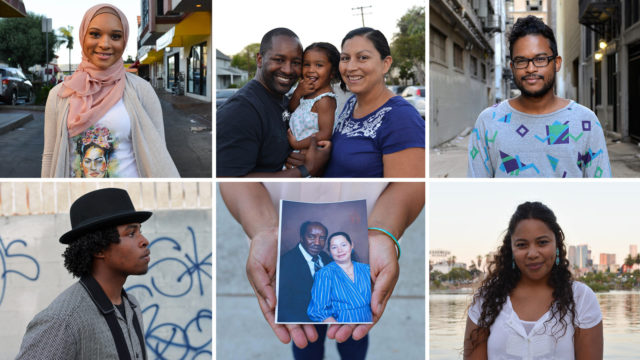Folium: An Emerging Entry In America’s Multiracial Vocabulary: ‘Blaxican’ via NPR / Code Switch
…
Connect
…
Between colonial history, immigration cycles, and cultural flow in the United States, there are endless new definitions of what “American” really is. Melissa Adams is a living example of what that changing definition of “American” really is. She was born black and Mexican. Those two races make up who she is and she’s struggled her whole life accepting exactly who she is and loving it. The struggle Melissa faces every day is what she states clearly as: “I know that I am black, but how do I present it to other people?”
…
“I try to be very careful about how I express myself,” Adams said. On the one hand, she wants to identify in a way that captures her life experiences and honors the history of racial injustice in her family. “On the other end, I totally understand that I will never be able to relate to some of the injustices that happened to my family and to other people who look a certain way.” – NPR / Code Switch
…
In the society we live in here in the United States, we often find ourselves caught up in racial profiling. There is some sort of stigma as to what a certain race should be doing or saying and so we prejudge what Melissa struggled with after her winning valedictorian at age 13. The dean of students was disappointed when Melissa walked in to receive her award. Melissa says that the dean was “notably disappointed” and couldn’t believe that Melissa was black and receiving that particular award.
…
“Melissa was named valedictorian of her middle school when she was 13. It was the first time anyone could remember a black student winning that honor at her school.
“Everyone was excited,” she said over breakfast at her family’s house recently. “It was the first black valedictorian!” School administrators planned a special ceremony for her, and the dean called Adams into her office to congratulate her. But when Adams walked in, the dean’s smile melted away.
“She was notably disappointed by what she saw,” Adams said, her voice trembling at the memory. “She didn’t believe I was black.” – NPR / Code Switch
…
…
When I was younger I always felt disconnected to my heritage because I didn’t understand it. Because I am Latina, and I grew up in California I can connect with Melissa on her point, because I would often have to return a blank stare when other Latinos spoke Spanish to me. I felt like a fake Latina because I couldn’t speak the language. I finally had the opportunity to connect my language to my heritage when I was able to live in a South American country where I spoke Spanish. I finally feel like I made a step towards accepting who I am.
…
…
You need to discover yourself. If you have Native American heritage, you need to embrace your heritage and love yourself. But something that Melissa has started in her journey to embrace her two races. In LA, many young people who are both black and Mexican are turning to a handy word to describe themselves: “Blaxican.” Apparently this is not a new term. Today, L.A. has become home to many children born to a Mexican parent and an African-American parent. Blacks and Mexicans are two of the most aggrieved groups in our nation’s history. He said that more and more, mixed-race people “want to be considered full and complete human beings. And by reinventing language, it gives us the ability to represent all that we are. It is a beautiful thing when you finally come to realization that we all make up this country and we need to accept ourselves for who we are and who we come from.
…
…
Julie Martin
LEAF Editor & Contributor
…



